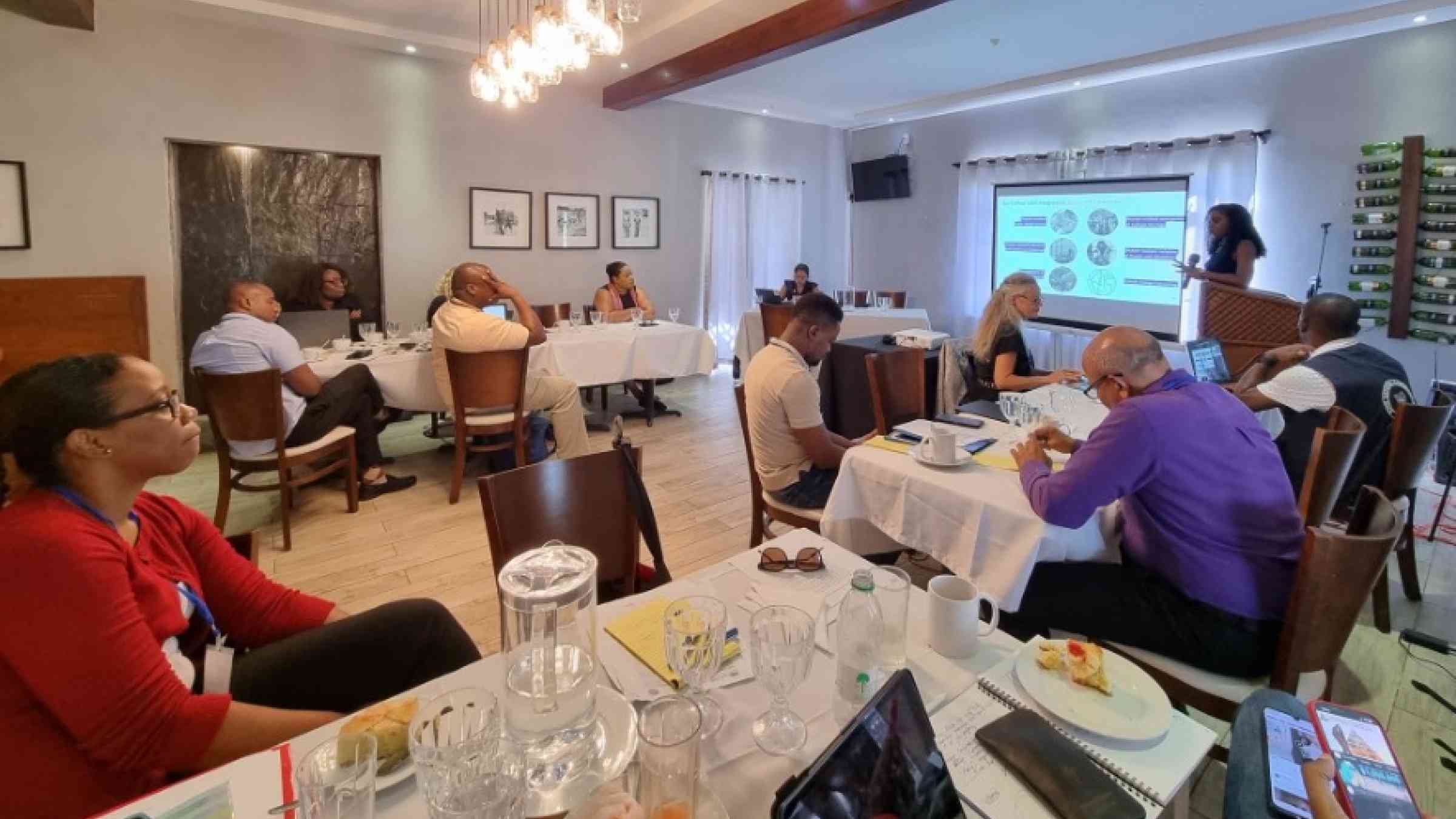MCR2030 in the Caribbean: working towards the adoption of disaster risk reduction and resilience strategies at the local level

Between 2021 and 2022, MCR2030 has been making efforts and driving a series of activities to expand its network of cities and strategic partners in the Caribbean. To date, the initiative has focused on working with municipalities in Small Island Developing States (SIDS) to implement disaster risk reduction and resilience strategies in their local policies.
Jamaica as an example of resilience
In October 2021, Jamaica marked a milestone by becoming the first country in the world to register all its local governments on the MCR2030 platform. With this historic step, the country's local governments began the process of applying the initiative's tools and methodologies to assess their risks, capacities and challenges in the face of disaster risk. The UNDRR Regional Office for the Americas and the Caribbean now plans to support one of the country’s municipalities in the application of additional tools in the framework of MCR2030 and in the development of a local strategy and Action Plan for disaster risk reduction. This initiative is scheduled for November 2022, and is expected to serve as a pilot for the development of action plans for other municipalities of Jamaica.
Tobago as an island leader in the region
In May 2022, Tobago, under the leadership of its island authority, the Tobago House of Assembly, became the first sub-national entity in Trinidad and Tobago to become part of MCR2030. In doing so, the Tobago Emergency Management Agency (TEMA), in partnership with the Office of Disaster Preparedness and Management (ODPM) and the UNDRR Regional Office for the Americas and the Caribbean, convened a cross-sectoral group of state and non-state actors to apply the MCR2030 tools on the island, including the Disaster Resilience Scorecard and the piloting of the Displacement Addendum.
This activity provided the island with the opportunity to improve its systemic risk planning efforts while aligning with the objectives sought by the Country Work Programme (National Disaster Risk Reduction Strategy). As a result, Tobago now has its own Local Disaster Risk Reduction Strategy and Action Plan that promotes resilience action at the local level.
Next steps for the initiative in the Caribbean
In October of this year, the MCR2030 team for the Americas and the Caribbean had the opportunity to present the initiative to the Civil Defence Commission (CDC) of Guyana, who expressed interest in learning more about the initiative and its tools and applications. In the coming months, engagement with the CDC and the Regional Democratic Councils of Guyana will increase, in the hope of realizing the benefits of MCR2030 for the country's regions.
Also in October, MCR2030 was presented to various representatives of countries that comprise the Caribbean Disaster Emergency Management Agency (CDEMA), many of which expressed their interest in learning more about the tools and possible applications for Small Island Developing States (SIDS) in the Caribbean. As such, collaboration will continue with these countries to expand the application of the MCR2030 tools in the Caribbean in order to support the implementation of local resilience actions.
Currently, MCR2030 activities are being planned for St. Vincent and the Grenadines. Next month, the initiative, working with the National Emergency Management Organisation (NEMO), will apply the tools and methodologies to a selected community in the country, which elaborate the development of its own local resilience action plan.

